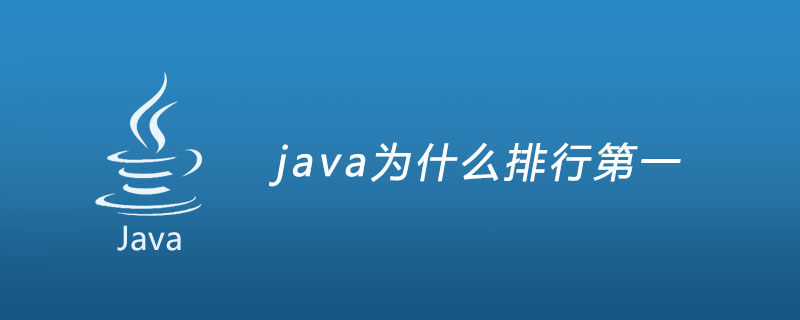
With the development of informatization in modern society, IT training has become more and more popular. In the field of development, Java has become the most popular programming software on the market today. In today's fast-developing world of information, Java technology has become ubiquitous, including mobile phone software, mobile Java games, computer software, etc. It can be said that as long as you use electronic products such as mobile phones and computers, you will use things related to Java.

Java is over 20 years old, and it depends on who you ask and how you count. Regardless of its age, Java still ranks first. Its usefulness, performance, and backward compatibility all demonstrate its value.
The beginning of 2016 marks the 20-year journey of Java. In fact, although Java claimed to be publicly released on May 23, 1995 (the HotJava browser did not achieve the same success), the first version of the official JDK was officially released on January 23, 1996, so Java It can be said that he has just turned 20 years old. There are a lot of things about Java worth looking back on, but I think what's even more interesting is the reason why Java is still successful 20 years later.
What is Java?
Java is a simple, object-oriented, distributed, declarative, robust and secure, structure-neutral, reliably Portable, high-performance, multi-threaded dynamic language. Generally, Java is divided into JavaSE, JavaEE, and JavaME. Each system has different directions and content.
Looking back at the achievements of the past fifteen years, Java has always been one of the best. Java has taken over the position once held by C, which was the most talked about language before Java became popular. Currently, there are more than nine million Java developers in the world.
Why can Java occupy the top spot as a programming language?
Why can Java continue to be popular?
I think there are some reasons. Here we list four:
1. Practicality
Shangguan Technology describes Java as a "blue-collar" programming language. It allows developers to complete their work at the lowest cost, and at the same time, it allows developers to continue to complete other people's (or even their own) code and understand the meaning after a period of time.
2. Backwards Compatibility
There is nothing worse than modifying normal code in an old version just to run it on a new version of the platform, Sun The company, and later Oracle, made a lot of efforts to ensure that one version of Java code could run normally on a new version.
3. Scalability/Performance/Reliability
Look at some large enterprises using the Java language: Twitter (Ruby-on-Rails abandoning the JVM, Because it no longer scales), Spotify, Facebook, Scalesforce, eBay, and of course Oracle. Hadoop, Cassandra and Spark, the basic frameworks of big data projects, all use Java or Scala and run on the JVM virtual machine. If you want good scalability and performance, Java and JVM are the best choices.
4. Freshness
According to Shangguan Technology’s observation: Since October 2014, the popularity of Java has increased significantly, which happened to be in JDK8 after release. JDK8 has significant changes for Java developers, it introduces Lambda expressions and Stream API. Suddenly Java developers were able to develop in a more efficient way without having to learn a whole new language like Scala. These features also make it possible to more simply take advantage of multi-core/multi-processor machines without having to write a lot of complex and potentially error-prone multi-threaded code. As the Jigsaw project kicks off for the release of JDK 9, we'll see modularity make large enterprise applications easier to build, deploy, and maintain. At the same time, in JDK10, plans to develop new language features are already in progress, such as value types and so on.
The above is the detailed content of Why java ranks first. For more information, please follow other related articles on the PHP Chinese website!